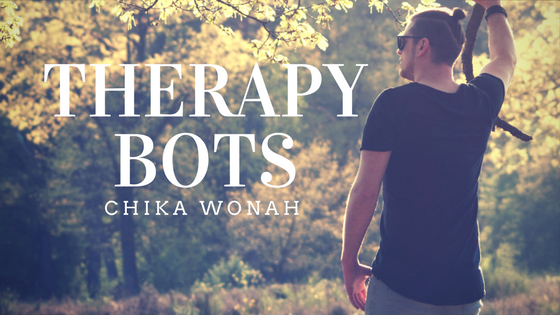Mental Health Care and all adjacent topics like access, protocol, and awareness continue to dominate public discourse as shows like Thirteen Reasons Why grow in popularity and teen suicide rates continue to swell. Naturally, technology does not exist in a vacuum but rather responds to the market demands and social needs. As such, many socially conscious programmers and inventors have looked into ways to harness algorithms, bots, and pre-existing social media to diagnose and treat mental health conditions before victims resort to extreme and harmful coping mechanisms.
The diagnosis side has called into collaboration predictive analytics, human behavior, and believe it or not, Instagram users. A March 2017 study out of Cambridge analyzed the Instagram behaviors of users with and without clinical depression to determine whether there were any tell-tale signs of developing depressive episodes. Ind determining the predictors of depression, the researchers hoped to publicize these and call into action users’ followers to check in on them.
After scrutinizing the posts of 166 users, 70 of whom were diagnosed with depression, the researchers found that depressed people tend to post more photos using the black and white filter, post fewer faces, and spend more time on the app. The researchers set their algorithm loose on fresh accounts and were able to correctly identify Instagram users with depression about 70% of the time. Mental health professionals and counselors can usually make a correct ID a little over 40% of the time, so this tool could help people get they need before they succumb to a treatable illness.
In addition to tools to diagnose mental health problems, programmers have ventured into providing better care to people who need additional support by means of hotlines and bots. Facebook Messenger has been a testing ground for lots of interactive bots, including webby-nominated Poncho, a humorous weather-predicting cat.
Programmers at Stanford University launched Dr. Woebot, a chatbot available on Facebook Messenger to help users document and track their moods and anxiety levels without having to consult (or pay for) a therapist. Their little project lives on Facebook and tracks moods, triggers, and solutions for its users/patients. Harnessing the year and years of research in the field of Cognitive Behavior Therapy, the bot guides users through exercises that bring harmony to thoughts, feelings, and behaviors. Users are asked to work through hypotheticals and think through difficult scenarios so that they can reclaim agency over their reactions and emotions in certain real-life settings.
Mental and cognitive health are nothing to be ashamed of, and it’s high time that our technological advances come to the aid of those who need our help the most.
